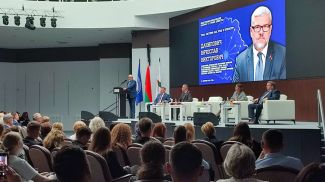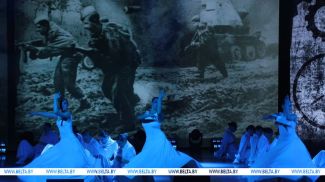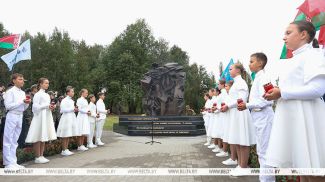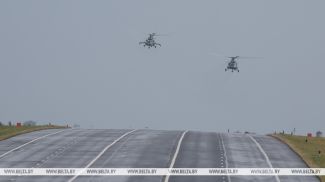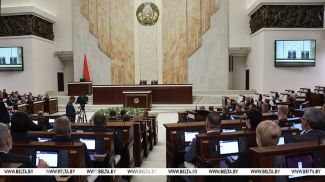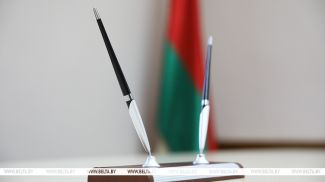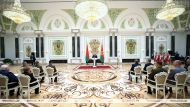
MINSK, 22 June (BelTA) – On 22 June Belarus observes the sad day – the National Remembrance Day of the Victims of the Great Patriotic War and the Genocide of the Belarusian People. On this day, the country remembers those who sacrificed their lives to defend the Motherland, those who were murdered, tortured in fascist captivity, who died in the rear from hunger and disease.
On 23 March Belarusian President Aleksandr Lukashenko signed Decree No. 117 to amend Decree No. 157 as of 26 March 1998 to change the name of the memorable date from “National Remembrance Day of the Victims of the Great Patriotic War - 22 June” to “National Remembrance Day of the Victims of the Great Patriotic War and the Genocide of the Belarusian people - 22 June”. The decree was based on the law of 5 January 2022 “On the genocide of the Belarusian people”. The law recognized as the genocide of the Belarusian people the atrocities committed by Nazi criminals and their accomplices, nationalist formations during the Great Patriotic War and the post-war period, aimed at the systemic physical destruction of the Belarusian people.
First days of the war and fierce defensive battles in Belarus
At dawn on 22 June 1941, Nazi Germany, violating the Non-Aggression Treaty, invaded the Soviet Union by launching Operation Barbarossa. The German military leadership expected to conduct a "Lightning War" and defeat the USSR in one blow. The most powerful group of German troops advanced into the territory of Belarus. Enemy aircraft bombed railway junctions, airfields, the cities of Brest, Grodno, Volkovysk, Baranovichi and Belarusian places.
On 22 June, border guards were the first to notice the movement near the Soviet border. At 4:00 in the morning the frontier outposts came under heavy artillery and machine gun fire. After the momentary confusion, the Soviet border guards commanders shouted out: "Take up arms!"
Under the cover of artillery, the German troops began to cross the rivers running along the border. Boats and rafts carrying enemy infantry sailed away from the western bank; amphibious tanks resurfaced on the eastern bank ready to move eastwards, towards thoroughfares and important roads. A special light machine-gun unit was assigned to destroy frontier posts.
As early as 10:45 on June 22, the deputy chief of the Western Border District, brigade commander Kurlykin reported to the headquarters: “Fighting is going on along the entire front, communications are broken in almost all the units, the border guards are fighting as long as they are breathing.”
Fortitude of the border guards, their sweeping heroism frustrated the plans of the German command who planned to destroy the frontier outposts within 30 minutes. The Nazis captured Brest and completely surrounded the fortress, but its defenders stubbornly resisted the invaders. Separate groups of Soviet soldiers continued fighting in the fortress until 20-30 July 1941.
German troops were also met with fierce resistance to the south of Brest. The Soviet 75th Infantry Division led by General Semyon Nedvigin, together with the Pinsk Military Flotilla stopped the offensive of the 53rd German Army Corp near the town of Malorita on 22 June 1941. Thanks to the skillful actions of the Soviet forces, three German divisions, including a tank division, were forced to switch to the defensive on 23-27 June.
In the first days of the war, the Western Front fought hard defensive battles in Belarus trying to push the enemy back. The Red Army demonstrated exceptional courage and dedication, which foiled Germany's "Lightning War" strategy.
Over 1.3 million Belarusians and natives of Belarus fought on the frontlines of the Great Patriotic War. As many as 217 generals and admirals, who were Belarusians, commanded army and navy units during the war. Many Belarusians became legends. They were well-known on all the fronts. Dovator, Lizyukov, Sychenko, and many other ones distinguished themselves in battles near Moscow. The pilot Aleksandr Gorovets shot down nine enemy aircraft during a firefight at the Kursk Salient. Zinaida Tusnolobova-Marchenko evacuated 128 wounded soldiers from battlefields.
Belarus has done a lot to perpetuate the memory of the fallen. This work continues. A decree “On perpetuating the memory of those who died defending the Fatherland and preserving the memory of the victims of wars” was signed in 2016. In February 2021, a government resolution adopted the state program “Perpetuating the memory of those who died defending the Fatherland” for 2021-2025.
The main forms of immortalization of those, who died during wars, are state record-keeping, beautification, and maintenance of military graves, graves of war victims, the submission of data to the automated databank Book of Memory of the Republic of Belarus, the creation of museums and memorial complexes, the establishment of monuments and commemorative signs dedicated to the most important events of the Great Patriotic War, the naming of geographical objects and organizations after those who died in defense of the Fatherland.
According to the Constitution, citizens of the Republic of Belarus have a duty to preserve the historical memory of the feat of the Belarusian people.
Belarus has adopted the laws "On the Prevention of the Rehabilitation of Nazism" and "On the Genocide of the Belarusian People" to preserve the historical memory and suppress the falsification of historical events. The Prosecutor General's Office of Belarus is investigating a criminal case on the genocide of the Belarusian people during the Great Patriotic War. During the investigation, new facts were established. The list of villages and hamlets that shared the tragic fate of Khatyn, i.e. that were burned down with their residents and never recovered after the war, became longer. As of today it includes 288 of them. Nazis carried out about 180 punitive operations and operated over 580 death camps on the territory of Belarus.
Trostenets was the largest death camp in the entire occupied Soviet territory. According to the latest data of the Prosecutor General's Office of the Republic of Belarus, at least 546,000 people were killed. During the Nazi occupation from 1941 to 1944, at least 3 million civilians and prisoners of war were exterminated on the territory of Belarus, more than 380,000 people were driven to German for slave labor many of whom died as a result of unbearable working conditions, deprivation and torture.
For the mass heroism and courage shown in the fight against the aggressors, the capital of Belarus, the city of Minsk, was awarded the honorary title "Hero City". The title of "Hero Fortress" was given to Brest Fortress. Other cities of Belarus were also honored. Numerous obelisks, monuments, memorial complexes, and the Mound of Glory honor the victims of the war and the feat of the people. The Belarusian State Museum of the History of the Great Patriotic War is an important scientific and cultural institution.
In February, Belarusian President Aleksandr Lukashenko signed Decree No. 75 to institute the medal “80 Years of Liberation of Belarus from Nazi invaders”. The medal will be awarded to veterans of the Great Patriotic War, former prisoners of Nazi camps, prisons, ghettos and other places of forced confinement created by the Nazis and their allies during the Second World War, foreign citizens and stateless persons who permanently reside outside Belarus and took direct part in the liberation of Belarus from the Nazi invaders during the Great Patriotic War. The medal will also be awarded to servicemen of the Armed Forces, other troops and military formations of Belarus, employees of government bodies and other persons who have made a significant contribution to the heroic and patriotic education of the country's citizens, perpetuation of the memory of the dead, organization of events dedicated to the 80th anniversary of the liberation of Belarus from the Nazis.
Commemorative events will be held throughout the country to observe the Day of National Remembrance of the Victims of the Great Patriotic War and the Genocide of the Belarusian People.
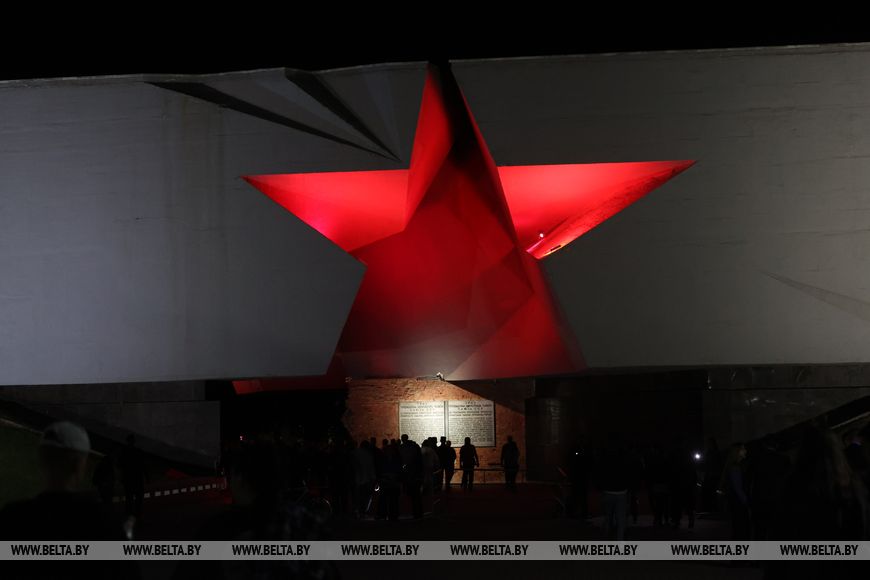
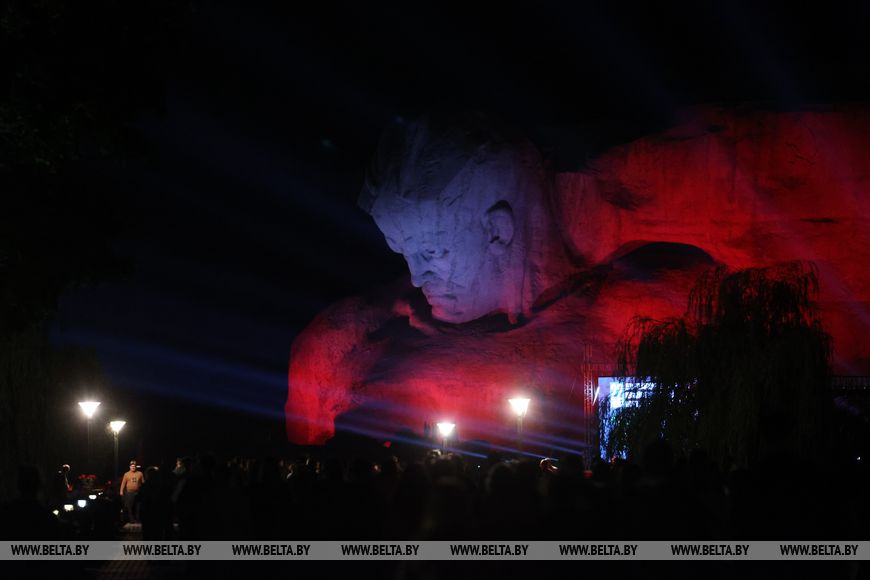
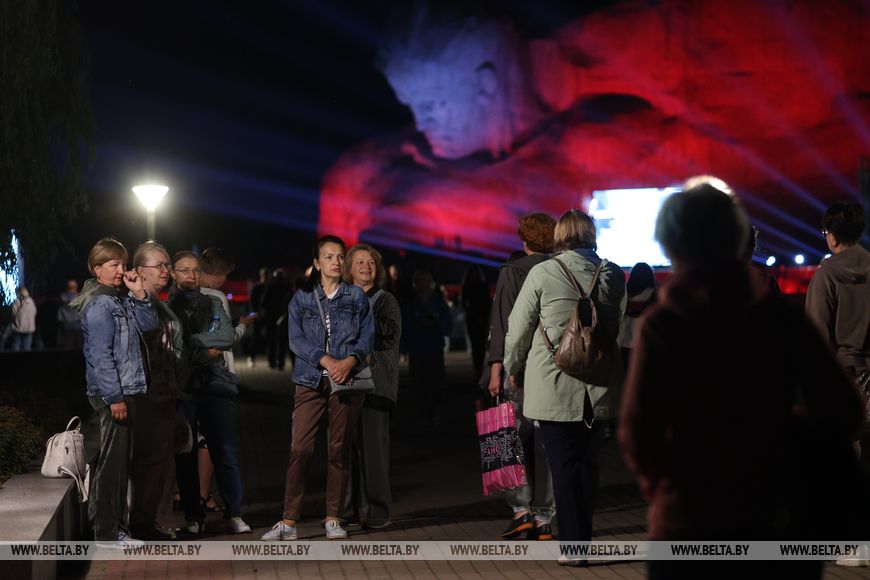
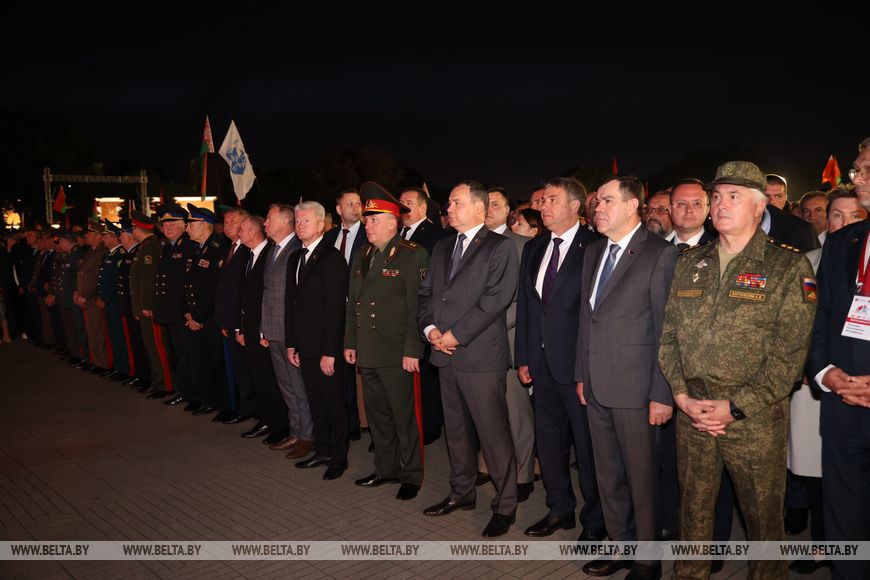
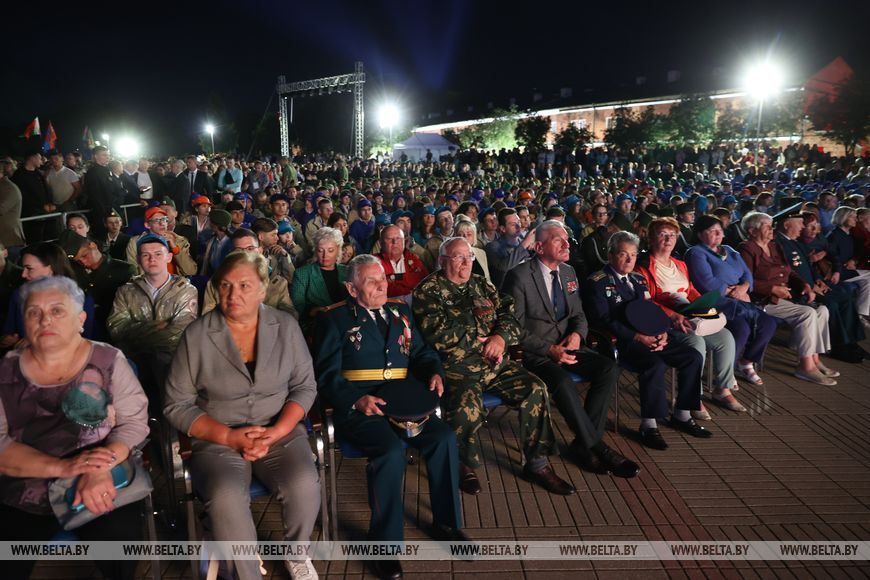
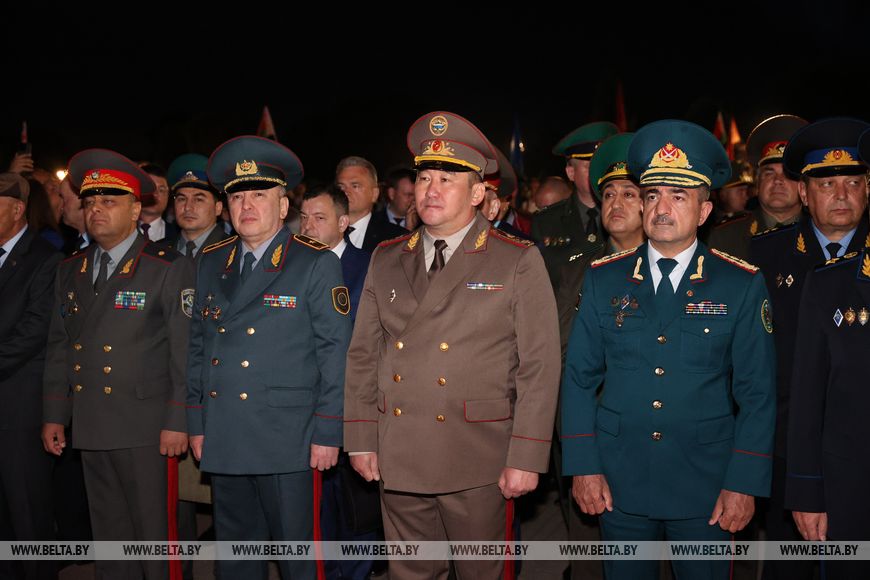
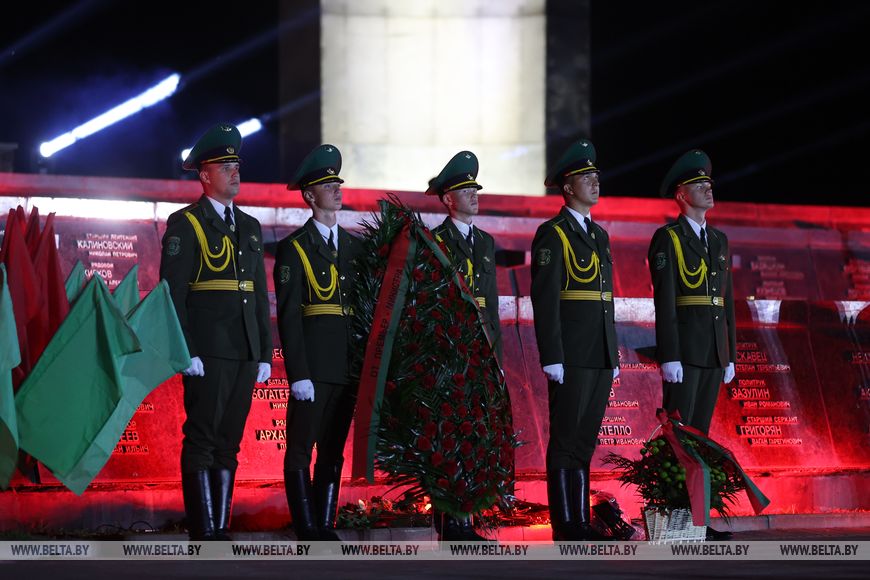
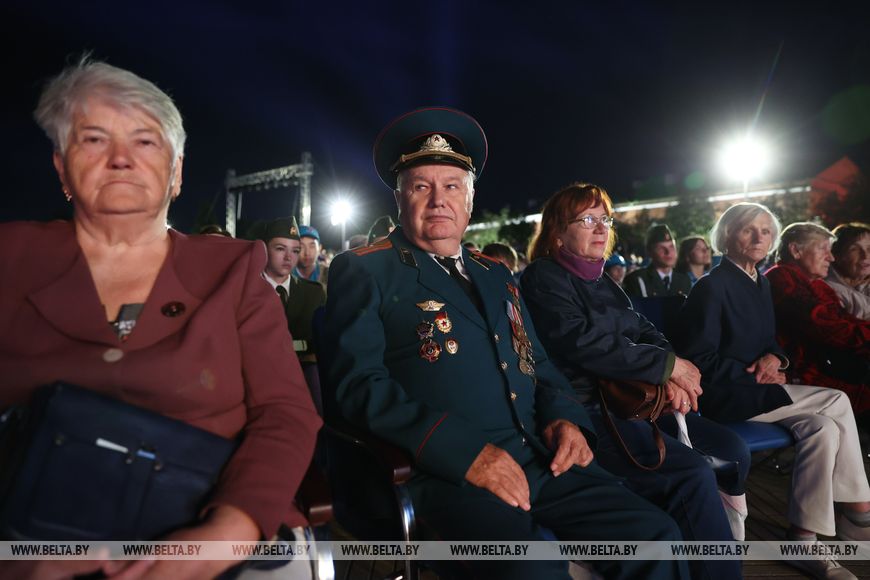
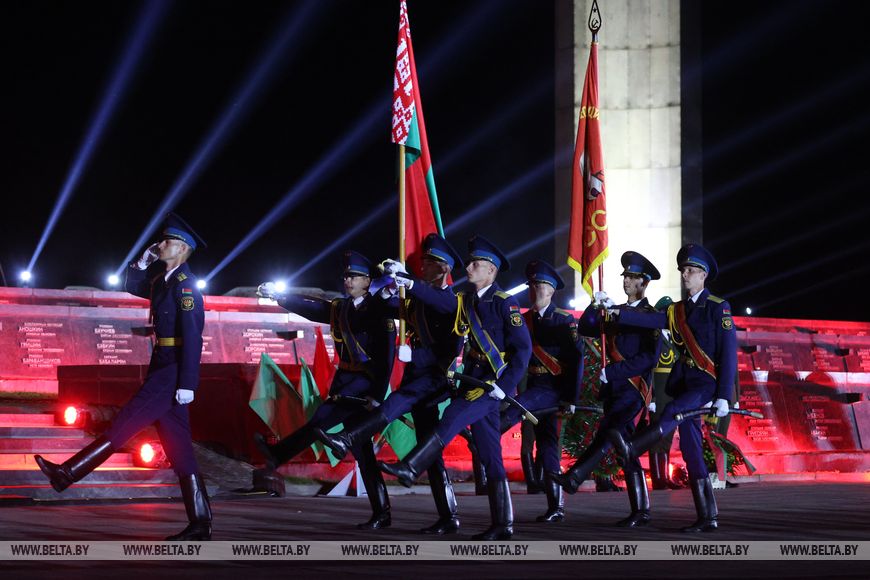
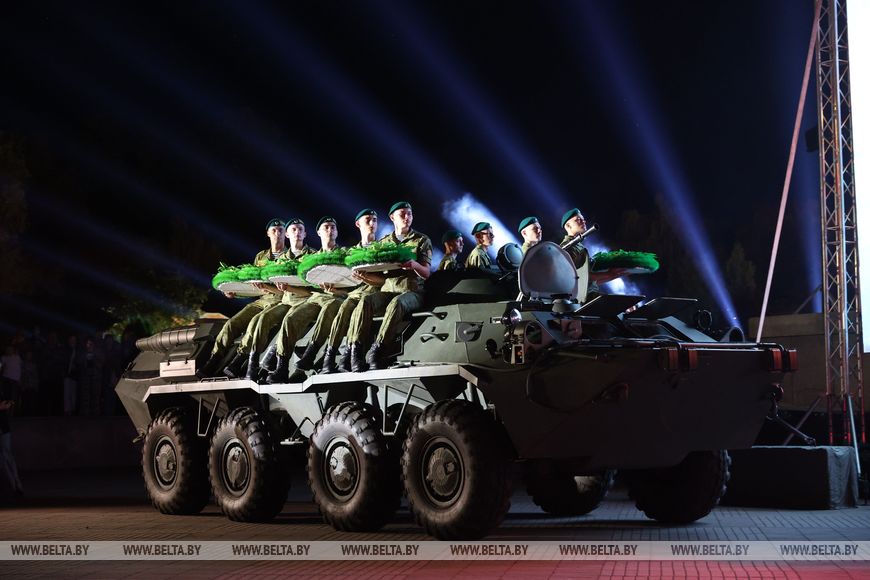
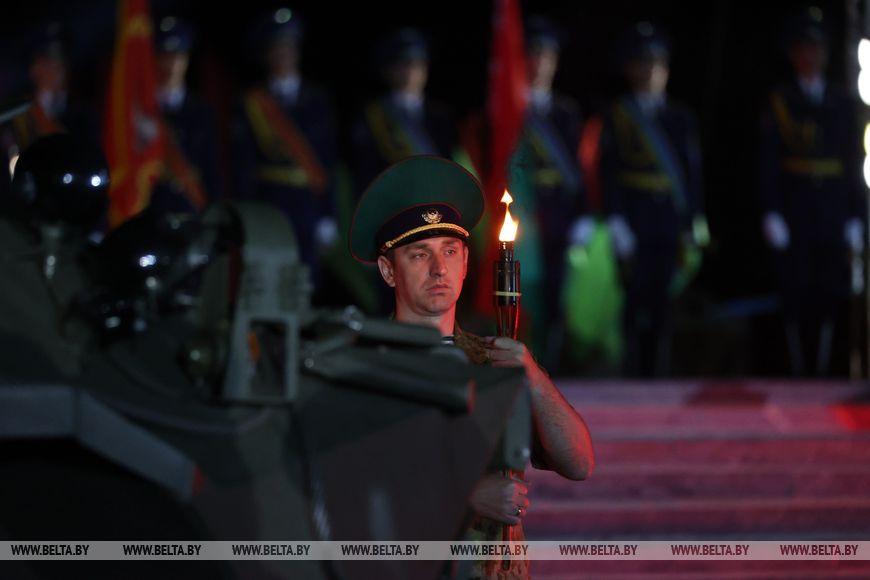
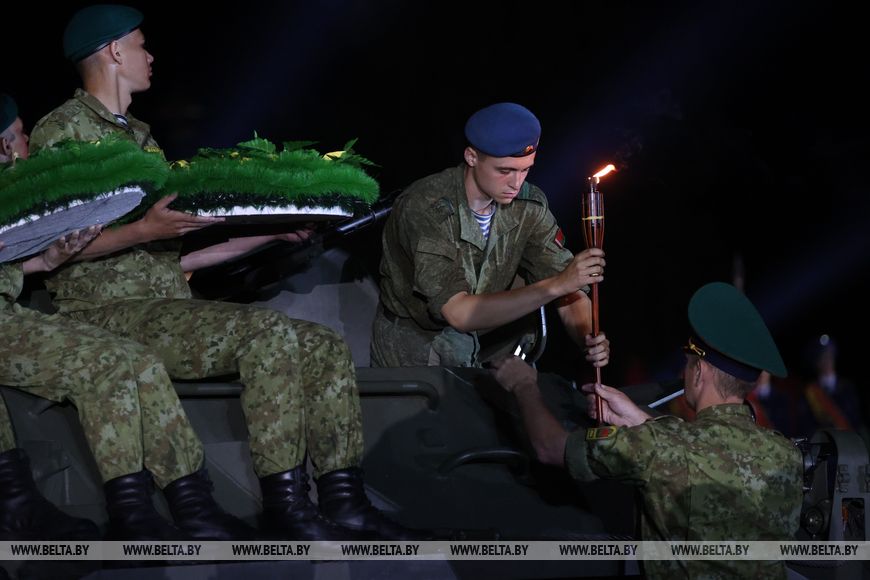
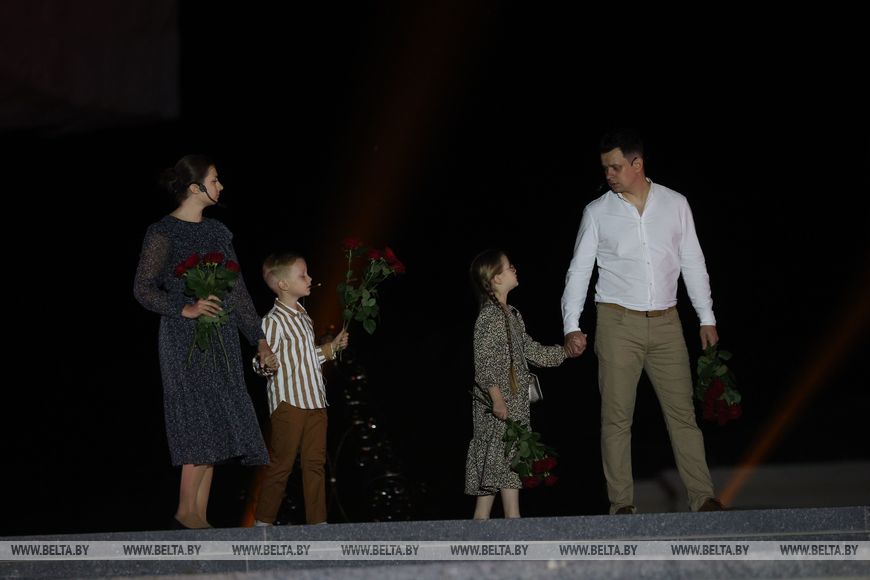
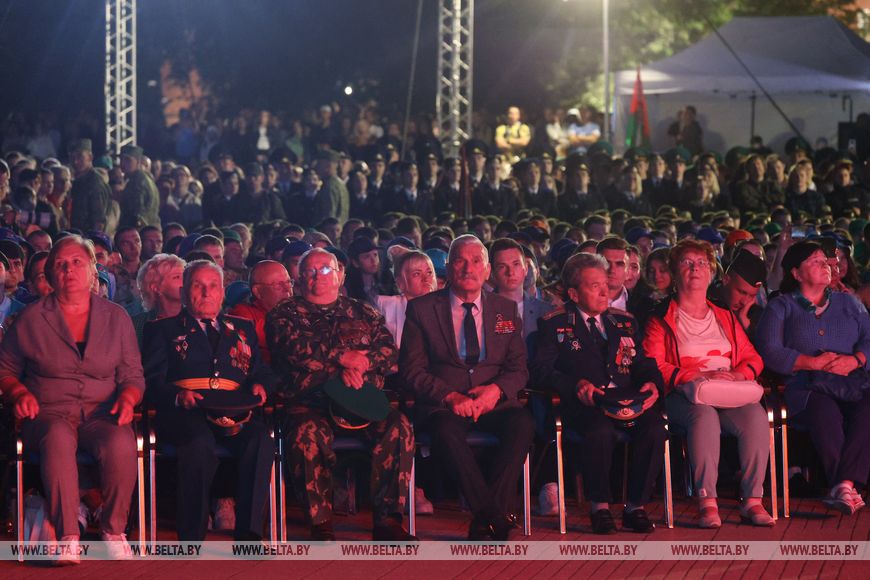
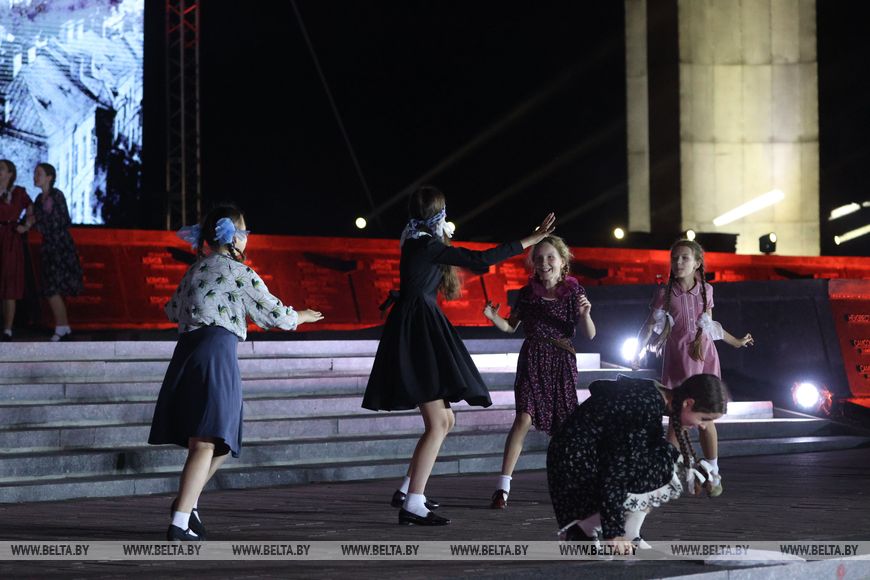
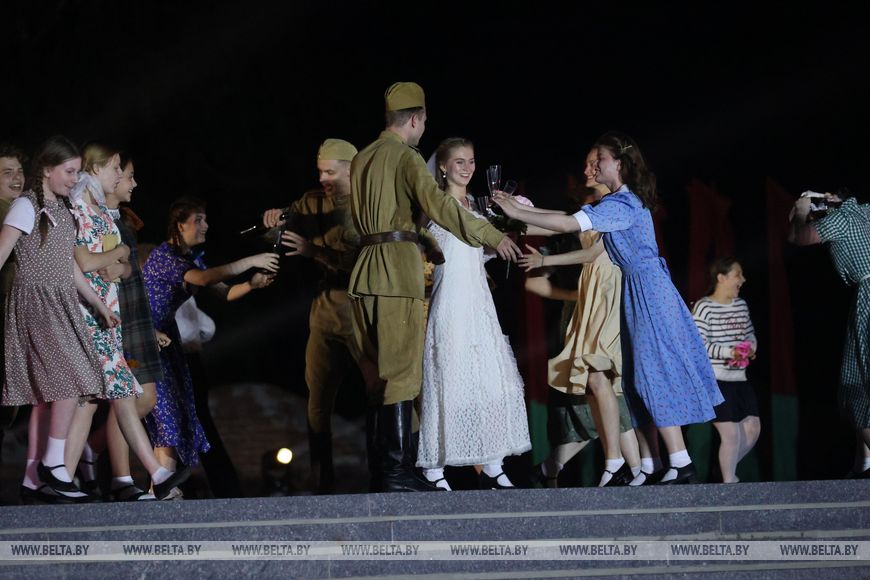
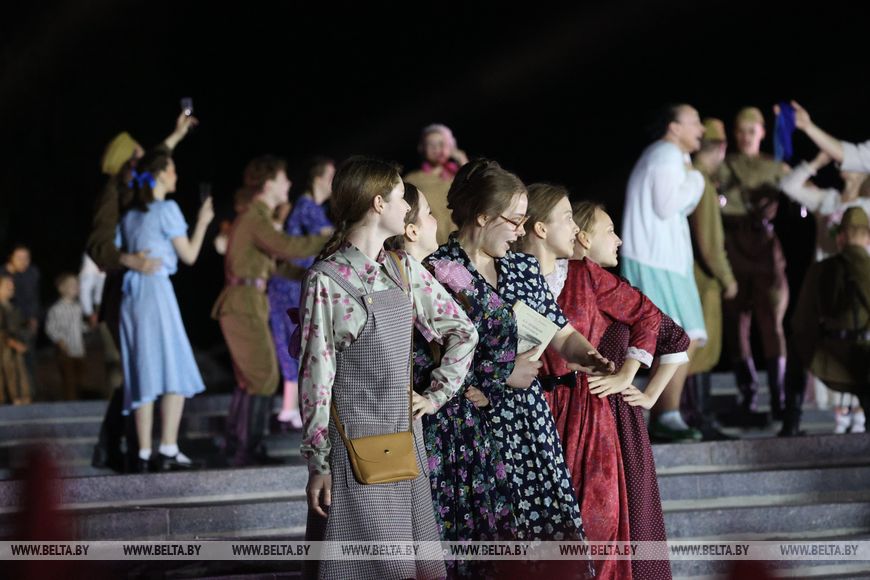
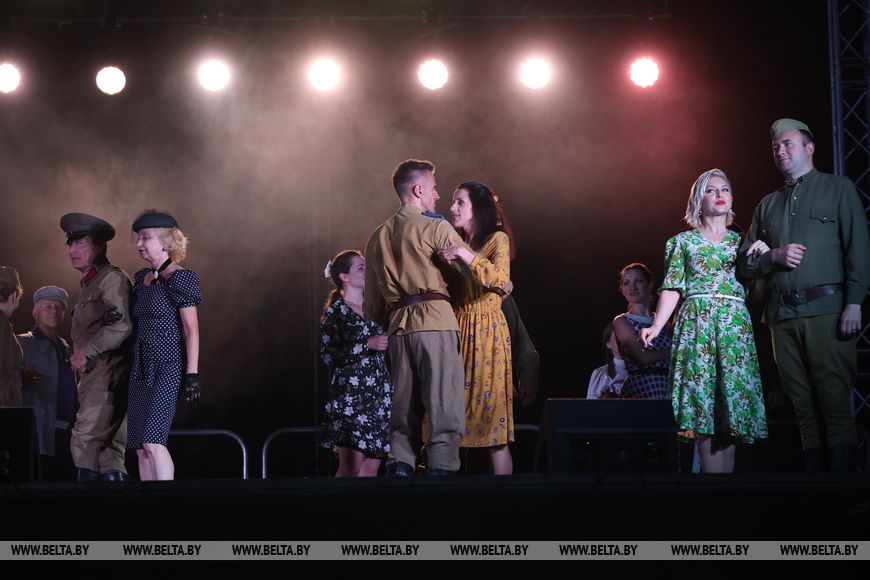
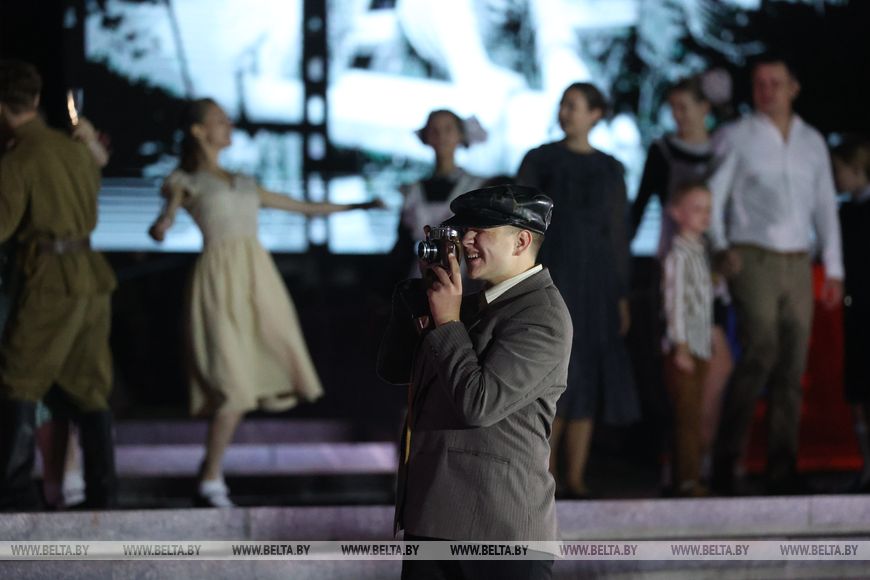
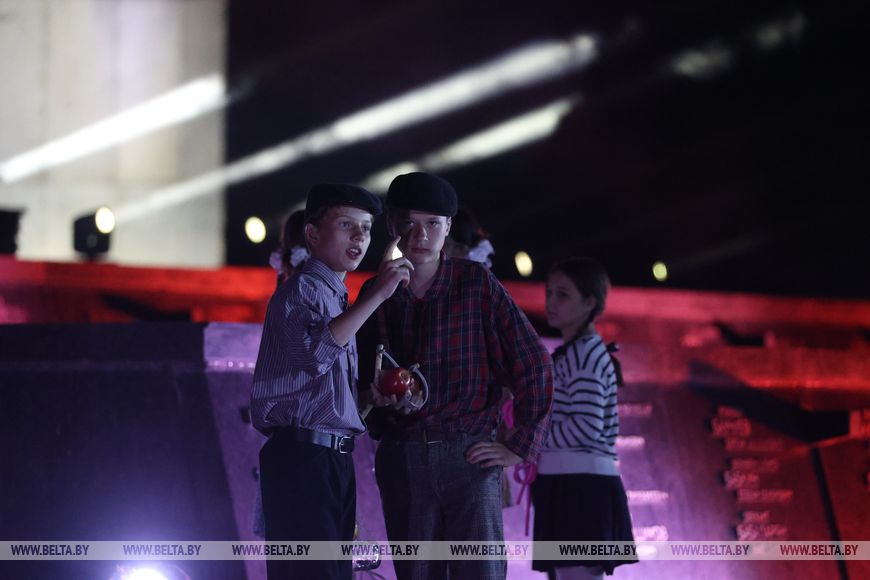
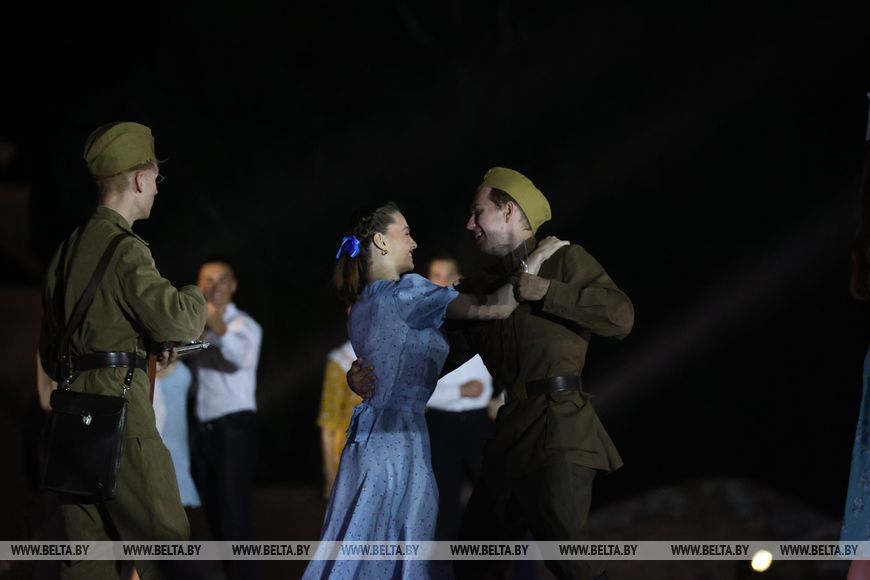
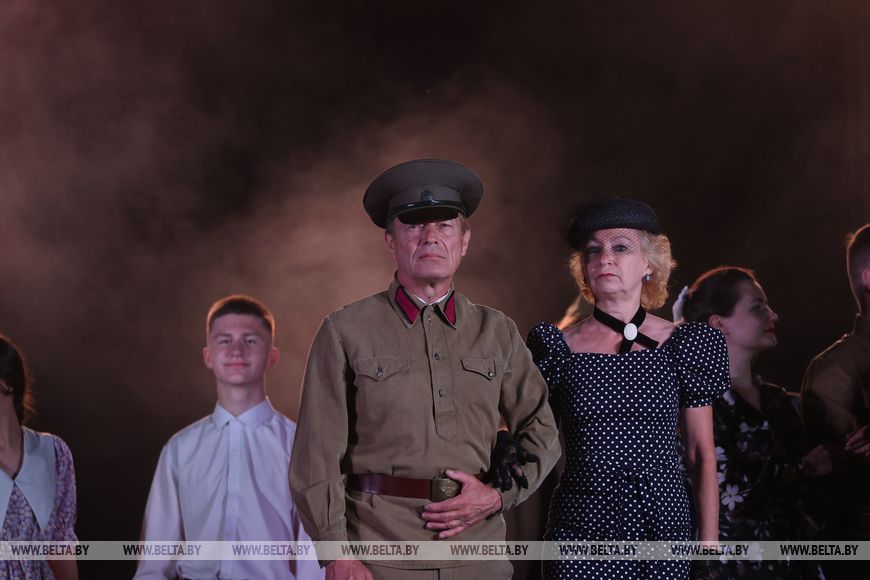
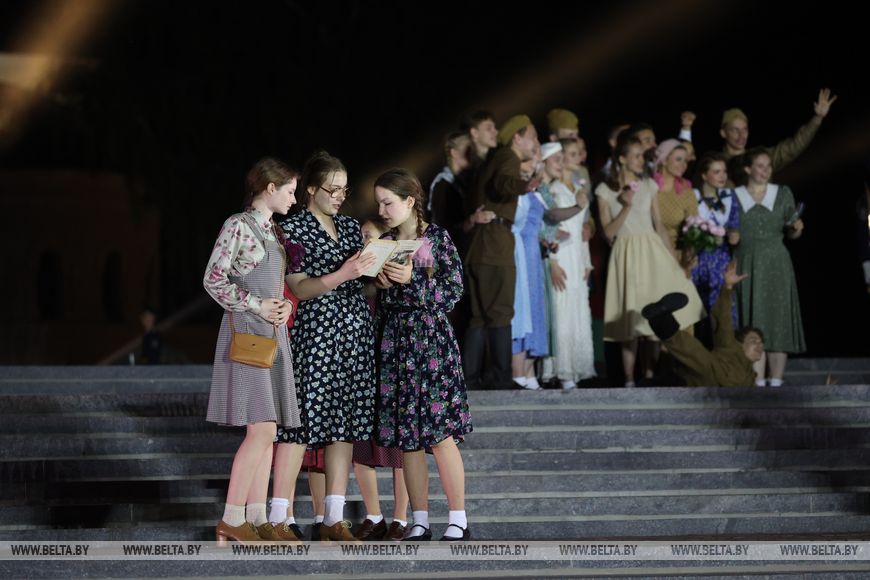
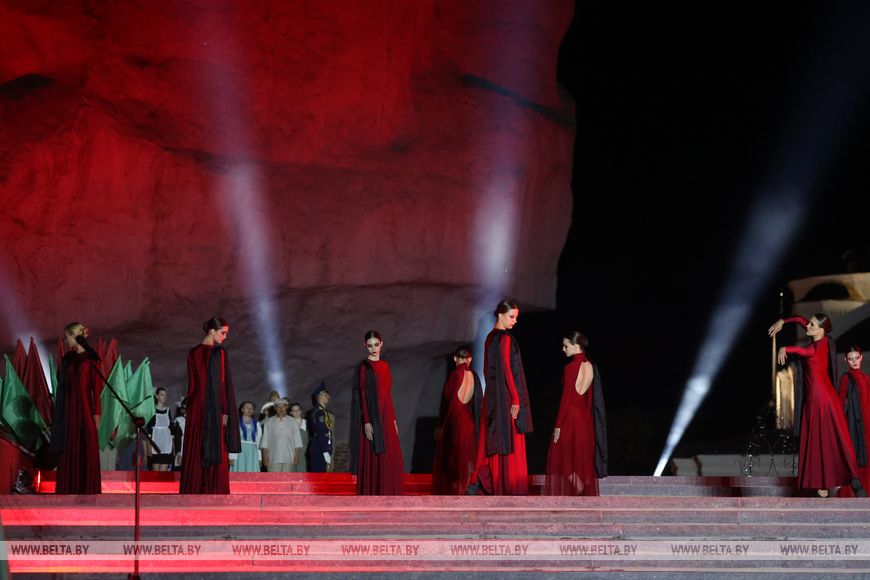
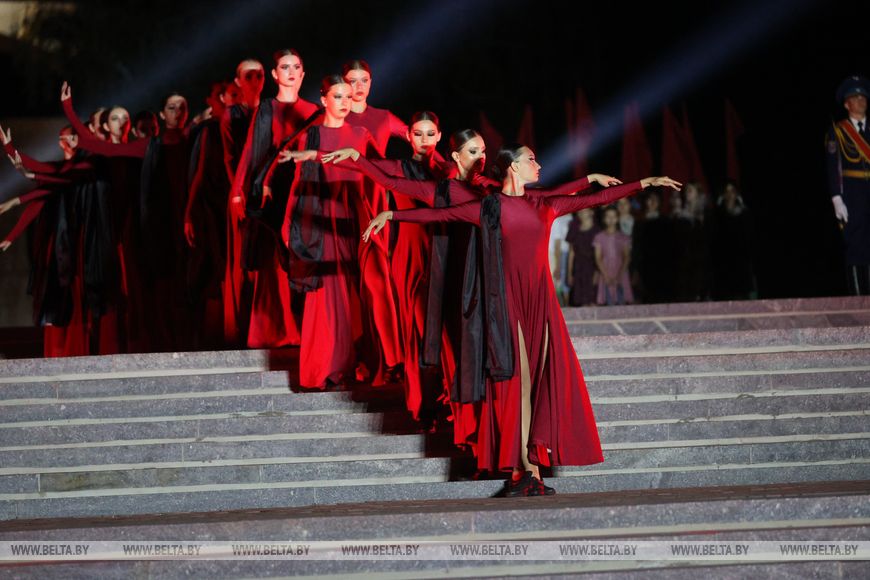
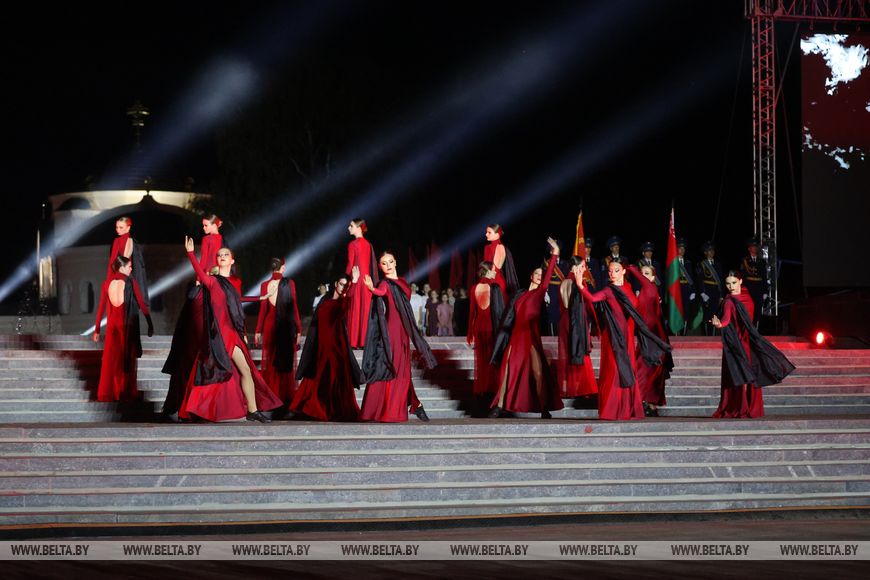
On 23 March Belarusian President Aleksandr Lukashenko signed Decree No. 117 to amend Decree No. 157 as of 26 March 1998 to change the name of the memorable date from “National Remembrance Day of the Victims of the Great Patriotic War - 22 June” to “National Remembrance Day of the Victims of the Great Patriotic War and the Genocide of the Belarusian people - 22 June”. The decree was based on the law of 5 January 2022 “On the genocide of the Belarusian people”. The law recognized as the genocide of the Belarusian people the atrocities committed by Nazi criminals and their accomplices, nationalist formations during the Great Patriotic War and the post-war period, aimed at the systemic physical destruction of the Belarusian people.
First days of the war and fierce defensive battles in Belarus
At dawn on 22 June 1941, Nazi Germany, violating the Non-Aggression Treaty, invaded the Soviet Union by launching Operation Barbarossa. The German military leadership expected to conduct a "Lightning War" and defeat the USSR in one blow. The most powerful group of German troops advanced into the territory of Belarus. Enemy aircraft bombed railway junctions, airfields, the cities of Brest, Grodno, Volkovysk, Baranovichi and Belarusian places.
On 22 June, border guards were the first to notice the movement near the Soviet border. At 4:00 in the morning the frontier outposts came under heavy artillery and machine gun fire. After the momentary confusion, the Soviet border guards commanders shouted out: "Take up arms!"
Under the cover of artillery, the German troops began to cross the rivers running along the border. Boats and rafts carrying enemy infantry sailed away from the western bank; amphibious tanks resurfaced on the eastern bank ready to move eastwards, towards thoroughfares and important roads. A special light machine-gun unit was assigned to destroy frontier posts.
As early as 10:45 on June 22, the deputy chief of the Western Border District, brigade commander Kurlykin reported to the headquarters: “Fighting is going on along the entire front, communications are broken in almost all the units, the border guards are fighting as long as they are breathing.”
Fortitude of the border guards, their sweeping heroism frustrated the plans of the German command who planned to destroy the frontier outposts within 30 minutes. The Nazis captured Brest and completely surrounded the fortress, but its defenders stubbornly resisted the invaders. Separate groups of Soviet soldiers continued fighting in the fortress until 20-30 July 1941.
German troops were also met with fierce resistance to the south of Brest. The Soviet 75th Infantry Division led by General Semyon Nedvigin, together with the Pinsk Military Flotilla stopped the offensive of the 53rd German Army Corp near the town of Malorita on 22 June 1941. Thanks to the skillful actions of the Soviet forces, three German divisions, including a tank division, were forced to switch to the defensive on 23-27 June.
In the first days of the war, the Western Front fought hard defensive battles in Belarus trying to push the enemy back. The Red Army demonstrated exceptional courage and dedication, which foiled Germany's "Lightning War" strategy.
Over 1.3 million Belarusians and natives of Belarus fought on the frontlines of the Great Patriotic War. As many as 217 generals and admirals, who were Belarusians, commanded army and navy units during the war. Many Belarusians became legends. They were well-known on all the fronts. Dovator, Lizyukov, Sychenko, and many other ones distinguished themselves in battles near Moscow. The pilot Aleksandr Gorovets shot down nine enemy aircraft during a firefight at the Kursk Salient. Zinaida Tusnolobova-Marchenko evacuated 128 wounded soldiers from battlefields.
Belarus lost every third resident in the war - the memory of them will live forever
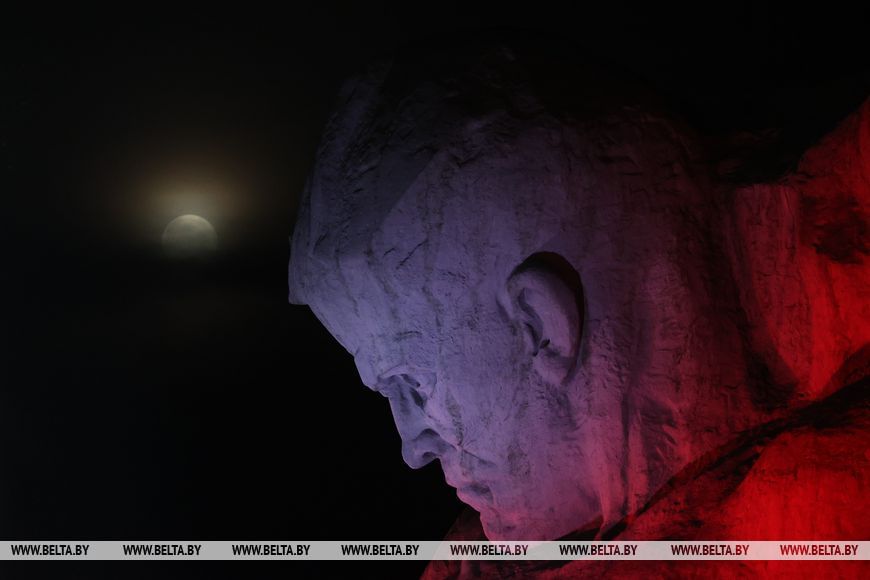
Events of the Great Patriotic War are becoming part of the distant past but the heroic deeds of those, who fell on the battlefields, sorrow about the millions of innocent victims, and the tragedy of the occupation remain in the hearts of older generations, their children, grandchildren, and great grandchildren.

Events of the Great Patriotic War are becoming part of the distant past but the heroic deeds of those, who fell on the battlefields, sorrow about the millions of innocent victims, and the tragedy of the occupation remain in the hearts of older generations, their children, grandchildren, and great grandchildren.
Belarus has done a lot to perpetuate the memory of the fallen. This work continues. A decree “On perpetuating the memory of those who died defending the Fatherland and preserving the memory of the victims of wars” was signed in 2016. In February 2021, a government resolution adopted the state program “Perpetuating the memory of those who died defending the Fatherland” for 2021-2025.
The main forms of immortalization of those, who died during wars, are state record-keeping, beautification, and maintenance of military graves, graves of war victims, the submission of data to the automated databank Book of Memory of the Republic of Belarus, the creation of museums and memorial complexes, the establishment of monuments and commemorative signs dedicated to the most important events of the Great Patriotic War, the naming of geographical objects and organizations after those who died in defense of the Fatherland.
According to the Constitution, citizens of the Republic of Belarus have a duty to preserve the historical memory of the feat of the Belarusian people.
Belarus has adopted the laws "On the Prevention of the Rehabilitation of Nazism" and "On the Genocide of the Belarusian People" to preserve the historical memory and suppress the falsification of historical events. The Prosecutor General's Office of Belarus is investigating a criminal case on the genocide of the Belarusian people during the Great Patriotic War. During the investigation, new facts were established. The list of villages and hamlets that shared the tragic fate of Khatyn, i.e. that were burned down with their residents and never recovered after the war, became longer. As of today it includes 288 of them. Nazis carried out about 180 punitive operations and operated over 580 death camps on the territory of Belarus.
Trostenets was the largest death camp in the entire occupied Soviet territory. According to the latest data of the Prosecutor General's Office of the Republic of Belarus, at least 546,000 people were killed. During the Nazi occupation from 1941 to 1944, at least 3 million civilians and prisoners of war were exterminated on the territory of Belarus, more than 380,000 people were driven to German for slave labor many of whom died as a result of unbearable working conditions, deprivation and torture.
For the mass heroism and courage shown in the fight against the aggressors, the capital of Belarus, the city of Minsk, was awarded the honorary title "Hero City". The title of "Hero Fortress" was given to Brest Fortress. Other cities of Belarus were also honored. Numerous obelisks, monuments, memorial complexes, and the Mound of Glory honor the victims of the war and the feat of the people. The Belarusian State Museum of the History of the Great Patriotic War is an important scientific and cultural institution.
In February, Belarusian President Aleksandr Lukashenko signed Decree No. 75 to institute the medal “80 Years of Liberation of Belarus from Nazi invaders”. The medal will be awarded to veterans of the Great Patriotic War, former prisoners of Nazi camps, prisons, ghettos and other places of forced confinement created by the Nazis and their allies during the Second World War, foreign citizens and stateless persons who permanently reside outside Belarus and took direct part in the liberation of Belarus from the Nazi invaders during the Great Patriotic War. The medal will also be awarded to servicemen of the Armed Forces, other troops and military formations of Belarus, employees of government bodies and other persons who have made a significant contribution to the heroic and patriotic education of the country's citizens, perpetuation of the memory of the dead, organization of events dedicated to the 80th anniversary of the liberation of Belarus from the Nazis.
Commemorative events will be held throughout the country to observe the Day of National Remembrance of the Victims of the Great Patriotic War and the Genocide of the Belarusian People.






























